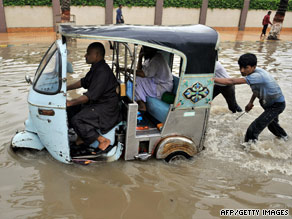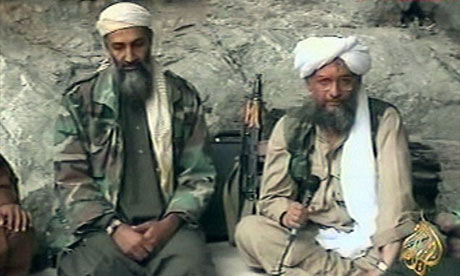
The Palin wars have erupted again inside the Republican Party. Leaks followed by trash-talking followed by recriminations.
The latest eruption began in Vanity Fair, with a lengthy article by Todd Purdum examining the Alaska governor's past and future. The controversy migrated instantly to the web and the blogs--it was, in fact, made for the viral communication of today's politics--and became even more intense, nasty and personal. Jonathan Martin provided the fullest account for Politico.
There are several elements to this controversy. One is over Palin and her fitness as a possible presidential candidate in 2012. The pretext is her suitability to have been John McCain's vice presidential nominee, but the real issue is the sharp division within the Republican Party over where she goes from here.
Another element of the controversy is the future of the party itself. How much must the GOP adapt and change to assure its vitality as a healthy alternative to the Democrats? Palin is only a proxy in this larger debate that is consuming many Republican strategists and elected officials.
Finally there is the after-action war over John McCain's failed presidential campaign that still rages among a handful of GOP insiders. To those who were on the inside, there was virtually no way for McCain to defeat Obama in a year when George W. Bush's approval rating was below 30 percent, when more than eight in 10 Americans thought the country was off track. To those on the outside, McCain's defeat may have been likely, but their view was aided by mismanagement and poor strategy atop the campaign.
The criticism of Palin in Vanity Fair, and the strong reaction by Palin defenders, echoed the breakdown that occurred at the end of the campaign. Never has there been such a moment of internecine warfare just as a losing candidate is exiting the stage as there was in the days following Obama's victory last November.
For several days, the two camps fired at one another at the expense of both Palin and McCain. The charges and countercharges aimed at Palin were, to many Republicans, shocking and inexcusable, a messy end to a dispiriting campaign. Would that it would have ended there. Instead the Palin controversy has become a staple of the Republican story in the months since.
There's no surprise that Palin remains a controversial figure with the public at large. Her performance in the campaign created a wide gulf in public opinion between those who found her fresh and appealing and those who found her shallow and unready. What has been surprising is the degree to which she has divided Republicans--at least Republican strategists, insiders and talking heads--and how virulent their disagreements have become.
This was that foundation upon which the latest exchanges have taken place, with William Kristol of the Weekly Standard and Steve Schmidt, who was one of McCain's top advisers, carrying on a public argument over whether Schmidt had privately criticized Palin in the Vanity Fair piece and whose credibility should most be called into question.
The exchanges were vicious, if perhaps of interest to a small community of GOP insiders. But they continue to keep alive the debate over Palin. She is, in the estimation of many Republicans and even some Democrats, the most charismatic Republican in the country. But she also has generated a small cadre of detractors inside the party who question her capacity and her judgment, particularly as a possible 2012 candidate.
Beyond Palin, however, is the question of whither the GOP. Schmidt caused a stir earlier this spring when he publicly urged the party to rethink its position on gay marriage. He argued that in a nation that is both more diverse and more tolerant, Republicans must not appear to be rigid in their judgments of how people live their lives.
Other Republican strategists who don't necessarily agree with Schmidt on that particular question nonetheless see the GOP as a shrinking enclave. They see a party that has lost its footing among moderates and independents in need of a major overhaul. They worry that, given present demographic trends, the party must modernize, as the British Conservative Party has done, or risk a long-term period in exile.
Others within the GOP family believe that a combination of a return to first principles, the addition of some fresh faces who can attractively repackage a conservative agenda and a few stumbles by President Obama will help start the GOP comeback.
They remember what happened after Bill Clinton won the White House and how Republicans hunkered down, created a wall of resistance to Clinton's agenda (particularly health care) and successfully stoked the anti-government sentiment around the country. The result was the landslide of 1994 that drove Democrats from power in Congress.
All of this comes together in the persona of Sarah Palin. She is an irresistible personality around whom the arguments about the Republican future will continue to swirl. Some of this is truly about Palin past and future, but the noise also symbolizes deeper arguments about a party attempting to regroup under difficult circumstances























